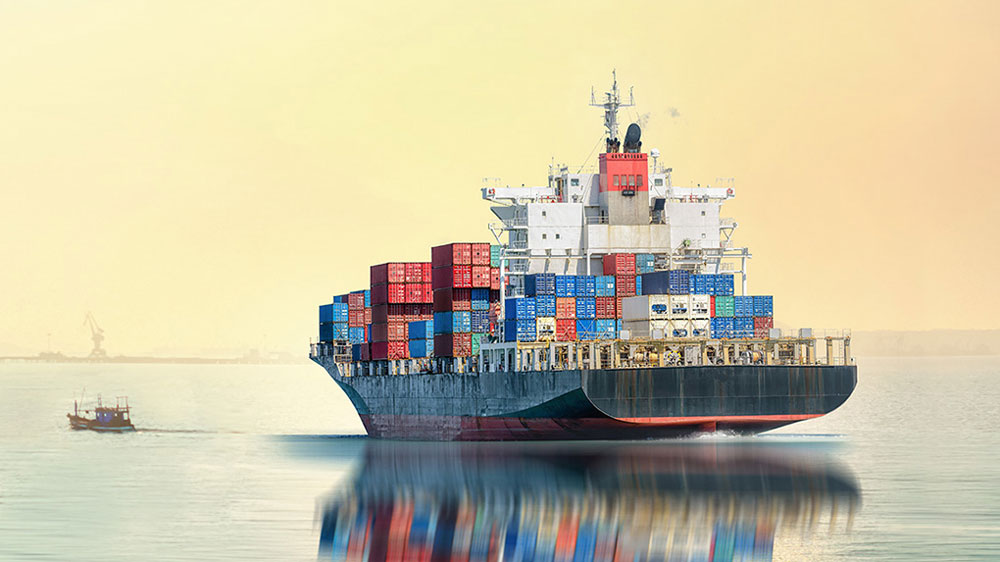Bucharest, 22 May 2024: The freight forwarder GOPET ROMANIA reports significant delays and operational changes because of the conflict in the Red Sea region. Against this backdrop of instability and challenges, the company has taken the decision to invest in a new shipment monitoring system, which compares shipment location information simultaneously from three independent sources – the shipping company, satellite data and port information. The company hopes that this system will enable GOPET to provide accurate estimates of arrival times for shipments.
Amid Houthi rebel attacks on merchant ships in the Red Sea, international trade through the Suez Canal, a crucial route for global transport traffic, has been disrupted. The crisis has forced ships to detour around Africa’s Cape of Good Hope, extending shipping routes by thousands of miles, doubling delivery costs, and causing serious delays. GOPET ROMANIA also had to make operational changes to manage with this difficult situation and ensure continuity of service for customers.
“During this period, we felt it was particularly important to be proactive, which is why we decided to invest in a new shipment tracking system to increase the accuracy with which we can communicate delivery times which have increased considerably. At the same time, we also looked at alternative loading options, such as rail transport. Based on transit time and price, rail ranges between sea and air transport. In the current market conditions, air transport is also an option, especially for smaller consignments, and the need to receive deliveries on time and in a short period of time; therefore, there are customers opting to pay higher rates and have more certainty on transit time. Lately, we have had delays of over 60 days for sea shipping. We consider it vital that all our partners and customers are aware of both the problems we are facing during this period, and especially that we are doing our best to identify the best loading options in terms of transit time and price to the customer”, says Iuliana Varlanuta, Sea Business Development Manager, GOPET ROMANIA.
These operational decisions include spot-checking each shipment to anticipate route changes and delays, expanding the partner network to find the best loading and transit options for customers, exploring alternative transport options such as rail or air to compensate for delays and uncertainties in sea shipping.
In recent months, the entire industry has faced constant delays in the delivery of goods and frequent changes in transport routes due to political and security changes in the Red Sea area and the African bypass. These have had a direct impact on the operations and services offered, creating several difficulties and challenges in adapting to the new context. Another effect observed is congestion at ports, another factor putting pressure on delivery times. Port operations are delayed. Then there is also pressure on road capacity, which becomes scarce. Congestion in the ports is automatically transmitted to traffic. All this contributes to further extending these delivery times.
All these factors have made the freight forwarder face real difficulties in providing reliable estimated arrival data to customers, due to frequent changes in transport routes and unforeseen delays, resulting in a major lack of predictability, a particularly important indicator in transport services.
Another major challenge is the constant change in transit times and delivery routes without additional information or justification from the shipping lines. In addition, the African detour has led to extra transit days: “With the African detour, on top of the increased prices, extra days are added to the initial transit time, somewhere between 20 and 25 days, because some shipping lines decide based on their preference for some ports at the expense of others. This non-compliant service leads to a change in the initial route at the time of loading a container, which translates into even more days of delay”, explained Iuliana Varlanuta, Sea Business Development Manager, GOPET ROMANIA. “Obviously, under these conditions, we can no longer talk about just-in-time deliveries. Customers must plan even further ahead to ensure that goods will arrive on time. For example, if we are talking about Christmas or Black Friday campaigns, companies need to make sure they have places booked as early as May or, at the latest, June.”
Currently, a transit time (tt) from South China to Romania has reached about 60 days, compared to 35-40 days as it used to be normally, and from North China to Romania, such a shipment can reach up to 70 days for imports. On the export side, things are similar, with transit times to Asian destinations reaching around 85-90 days. As a result of increased transit times and the insecurity caused by the choice of new routes, the direct shipping service has also been halted.
Physical delays in the supply chain obviously also have a financial impact through delayed payments, leading to delayed cashflows. Nevertheless, GOPET ROMANIA reaffirms its commitment to its customers and partners, pledging to continue its efforts to provide high quality services and tailored solutions despite the challenges faced.
About GOPET ROMANIA
With over 20 years in the industry, GOPET ROMANIA is an integrated transport and logistics service provider, offering road, rail, sea, and air transport solutions as well as warehousing and logistics services. Part of a regional group with presence also in Bulgaria, Greece, Turkiye, Poland and Spain, the company is positioned in the top 15 forwarding houses, acquiring over time notoriety in the field of international road transport. Thanks to its vision of developing long-term partnerships, growth plans focused on service diversification, especially on the “green” transport component and increasing efficiency through digitalization, GOPET ROMANIA identifies itself as an expert in the industry.


